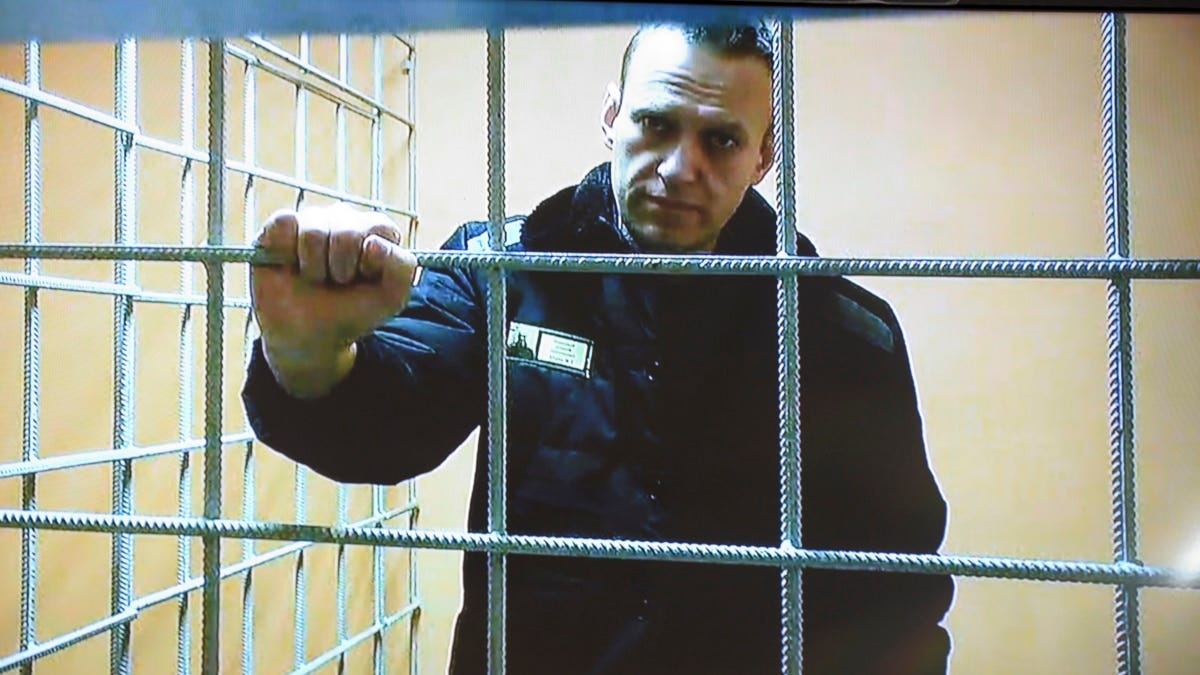The Just Shall Live
On the sudden death of Alexei Navalny
I can’t remember how old I was, maybe 12 or 13, but I was sitting on the couch reading the Beatitudes, and I got to the verse where Jesus says “Blessed are ye, when men shall revile you, and persecute you, and shall say all manner of evil against you falsely, for my sake. Rejoice, and be exceeding glad: for great is your reward in heaven: for so persecuted they the prophets which were before you.”
Here I paused and loudly commented, “Well, that’s not very comforting!” Mom overheard me and started laughing. We still sometimes remember and laugh about it.
The late Alexei Navalny, who “died suddenly” in a gulag last week, also quoted the Beatitudes in the closing statement for his sham trial in 2021. He had been arrested immediately after emerging from a German hideout, where he was recovering from a near-fatal assassination attempt by Novichok—Putin’s signature nerve agent. I highly recommend the Oscar-winning documentary Navalny, which chronicles Navalny’s narrow escape, his investigative counter-strike against Putin’s team, and, finally, his choice to go home to certain arrest and imprisonment. It ends with dramatic scenes of his plane circling, changing course as reports come in about the uncontrollable crowds awaiting him in Moscow, then finally landing, where he kisses his wife one last time before being whisked away without his lawyer.
There’s no footage of the trial, but we know from transcripts that he took a moment in his statement to discuss his Christian faith. He was not always so devout. He once confessed that until becoming a father in his mid-20s, “I was such a rabid atheist that I was ready to grab any priest by the beard.” But that was not the man who delivered these words in January 2021:
If you want I’ll talk to you about God and salvation. I’ll turn up the volume of heartbreak to the maximum, so to speak. The fact is that I am a Christian, which usually rather sets me up as an example for constant ridicule in the Anti-Corruption Foundation, because mostly our people are atheists and I was once quite a militant atheist myself. But now I am a believer, and that helps me a lot in my activities, because everything becomes much, much easier. I think about things less. There are fewer dilemmas in my life, because there is a book in which, in general, it is more or less clearly written what action to take in every situation. It’s not always easy to follow this book, of course, but I am actually trying. And so, as I said, it’s easier for me, probably, than for many others, to engage in politics … “Blessed are those who hunger and thirst for righteousness, for they will be satisfied.” I’ve always thought that this particular commandment is more or less an instruction to activity. And so, while certainly not really enjoying the place where I am, I have no regrets about coming back, or about what I’m doing. It’s fine, because I did the right thing. On the contrary, I feel a real kind of satisfaction. Because at some difficult moment I did as required by the instructions, and did not betray the commandment.
As Navalny notes, many of his own colleagues and followers don’t share his faith. Yet they willingly shared his risk in life and now openly mourn him in death. The most chilling scenes in the documentary are the moments when police drag protesters away at the Moscow airport where Navalny was initially supposed to land. We have no idea what happens to these people, nor do we know anything about them. They could be Christians, they could be atheists. All we know is that, like their hero, they did the right thing.
Why, though? Why do so many people around Navalny share his vision, even though they aren’t reading out of the same instruction book?
I submit that book contains the answer.



